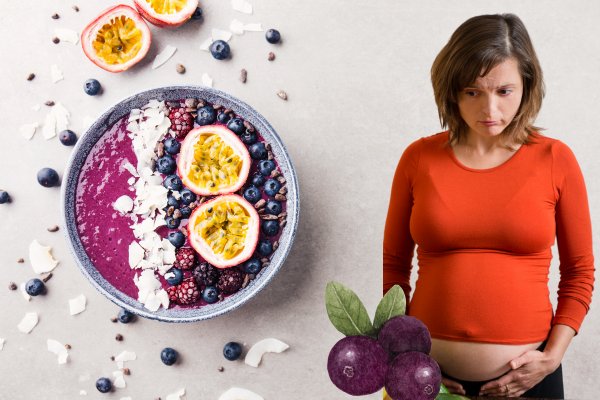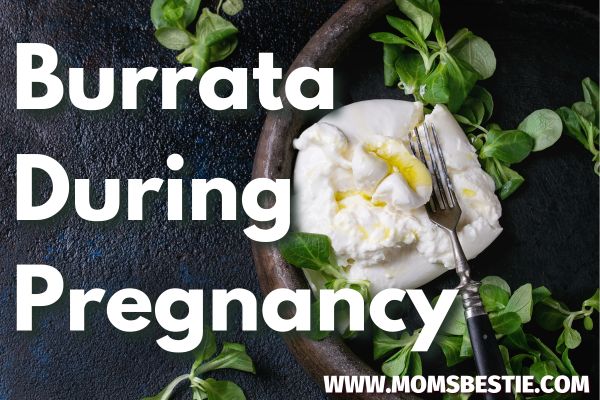Can You Eat Eggs Benedict While Pregnant?

Pregnancy is an incredibly important phase in a woman’s life where you want to ensure that you and your baby are healthy and safe throughout this journey.
While there are many foods that are safe and nutritious to consume during pregnancy, there are also some that can pose a risk.
One such food is Eggs Benedict, a popular breakfast dish that contains raw or undercooked eggs.
Consuming these eggs can be dangerous for you and your baby, as they may contain harmful bacteria like salmonella.
In this article, we will discuss why uncooked Eggs Benedict is unsafe during pregnancy and provide tips on how to enjoy this dish safely.
What Is Eggs Benedict?
Eggs Benedict is a classic breakfast dish that is typically served hot and is known for its rich and indulgent flavor.
To prepare Eggs Benedict, the English muffin is toasted and then topped with Canadian bacon or ham.
A poached egg is then placed on top of the bacon, and the entire dish is covered in hollandaise sauce, which is made from egg yolks, butter, lemon juice, and seasonings.
It is a popular brunch item and can be found on many breakfast menus.
Can Pregnant Women Eat Eggs Benedict?
Pregnant women should be cautious when it comes to consuming Eggs Benedict, as the dish contains raw or undercooked eggs which can pose a risk of foodborne illness.
The concern with consuming raw or undercooked eggs during pregnancy is the potential for the eggs to contain harmful bacteria like salmonella.
Salmonella is a type of bacteria that can cause food poisoning, which can lead to nausea, vomiting, diarrhea, and fever.
In pregnant women, food poisoning can cause dehydration and can even lead to premature labor or other complications during pregnancy.
Why Is Eggs Benedict Unsafe In Pregnancy? And How To Make It Pregnancy-Safe?
Raw Eggs In Hollandaise Sauce
Hollandaise sauce is a key ingredient in Eggs Benedict and is made from egg yolks, butter, lemon juice, and seasonings.
It may contain raw or undercooked eggs, which can carry harmful bacteria such as salmonella.
If the sauce is not heated to a safe temperature, it can pose a risk of foodborne illness to pregnant women and their unborn babies.
To enjoy hollandaise sauce safely during pregnancy, it’s important to ensure that it is heated to a temperature of 160°F (71°C) or above.
This temperature is high enough to destroy any harmful bacteria that may be present in raw eggs.
To heat hollandaise sauce, it can be placed in a double boiler or a metal bowl placed over a pot of simmering water.
Whisk the sauce continuously and check the temperature regularly using a food thermometer until it reaches the safe temperature of 160°F (71°C).
Unpasteurized Eggs
Eggs are a good source of high-quality protein, which is important for supporting fetal growth and development.

They also contain choline, a nutrient that helps to support brain development in the fetus and are rich in essential vitamins and minerals like vitamin D, vitamin B12, and iron, which are important for maintaining a healthy pregnancy.
But unpasteurized eggs can be harmful to pregnant women because they can carry harmful bacteria, such as salmonella.
To reduce the risk of salmonella infection during pregnancy, it is recommended to avoid consuming raw or undercooked eggs and to use pasteurized eggs instead.
Pasteurization is a process that involves heating the eggs to a high temperature to kill any harmful bacteria, without affecting the quality or nutritional value of the eggs.
Store The Eggs Safely
Keep eggs refrigerated:
Store eggs in their original carton in the refrigerator at a temperature of 40°F (4°C) or below.
The carton helps to protect the eggs and prevent them from absorbing any odors from other foods in the fridge.
Store eggs in the right spot:
Store eggs in the main part of the refrigerator, rather than in the door, where the temperature can fluctuate more easily.
Use eggs before the expiration date:
Always check the expiration date on the egg carton before using it. If the date has passed, it’s best to discard the eggs.
Use ‘Healthy’ English Muffins
English muffins can be a convenient and versatile option for pregnant women, but it’s important to choose a healthy variety.
Here are some tips on how to choose a healthy English muffin:
Look for whole grain:
Choose English muffins made with whole grains, which are high in fiber and important nutrients like B vitamins and iron.
Whole-grain English muffins can help to keep you feeling full and satisfied for longer periods of time.
Watch for added sugar:
Some English muffins may contain added sugar, which can contribute to weight gain and other health issues.
Look for brands that are low in sugar or have no added sugar.
Choose low-fat varieties:
English muffins can be high in calories and fat, so look for brands that are low in fat or fat-free to reduce your calorie intake.
Check the ingredient list:
Avoid English muffins that contain preservatives or artificial ingredients, and choose brands with a short ingredient list that you can understand.
Consider making your own:
Making your own English muffins at home can be a healthier option, as you can control the ingredients and reduce the amount of added sugar and fat.
Alternative Egg Recipes To Enjoy During Pregnancy
Eggs Florentine
This dish is a variation of Eggs Benedict that replaces the ham or bacon with cooked spinach.
To make Eggs Florentine, first toast an English muffin and wilt a handful of fresh spinach in a pan.
Poach two eggs until they are cooked to your liking, and then place them on top of the toasted English muffin.
Add the cooked spinach on top of the eggs and drizzle with thoroughly cooked hollandaise sauce or a simple lemon and butter sauce.
Smoked Salmon And Avocado On An English Muffin
This is a healthy and flavorful alternative to Eggs Benedict that uses smoked salmon and avocado as the main toppings.
To make this dish, simply toast an English muffin and spread mashed avocado on top.
Add slices of smoked salmon on top of the avocado and season with salt, pepper, and a squeeze of fresh lemon juice.
Vegetarian Eggs Benedict
This dish is a vegetarian version of Eggs Benedict that uses sautéed mushrooms, roasted tomatoes, or grilled asparagus as a substitute for ham or bacon.
To make Vegetarian Eggs Benedict, first toast an English muffin and cook your choice of vegetables until they are tender and lightly browned.
Place the cooked vegetables on top of the toasted English muffin, and drizzle with hollandaise sauce or a simple lemon and butter sauce.
Huevos Rancheros
This Mexican-inspired dish consists of a tortilla topped with eggs, beans, salsa, and avocado.
To make Huevos Rancheros, start by warming up a tortilla in a pan.
Add a layer of refried beans or black beans on top of the tortilla, followed by two eggs that have been cooked to your liking.
Top with salsa, slices of avocado, and chopped fresh cilantro.
This dish can also be customized with additional toppings such as cheese, sour cream, or hot sauce.
Wrapping It Up!
Taking care of yourself during pregnancy is critical, and making informed dietary choices is a significant step toward a healthy pregnancy and a healthy baby.
I hope this article has provided you with valuable insights into the risks associated with consuming Eggs Benedict during pregnancy and the safe alternatives that you can choose instead.
Disclaimer!!!
Please note that this article is for informational purposes only and should not be considered a substitute for professional medical advice. Always consult with your healthcare provider before making any changes to your diet or lifestyle during pregnancy.





